In their confrontation with their own persecution and the losses they experienced, Jewish survivors in Europe were the first to research Nazi crimes.
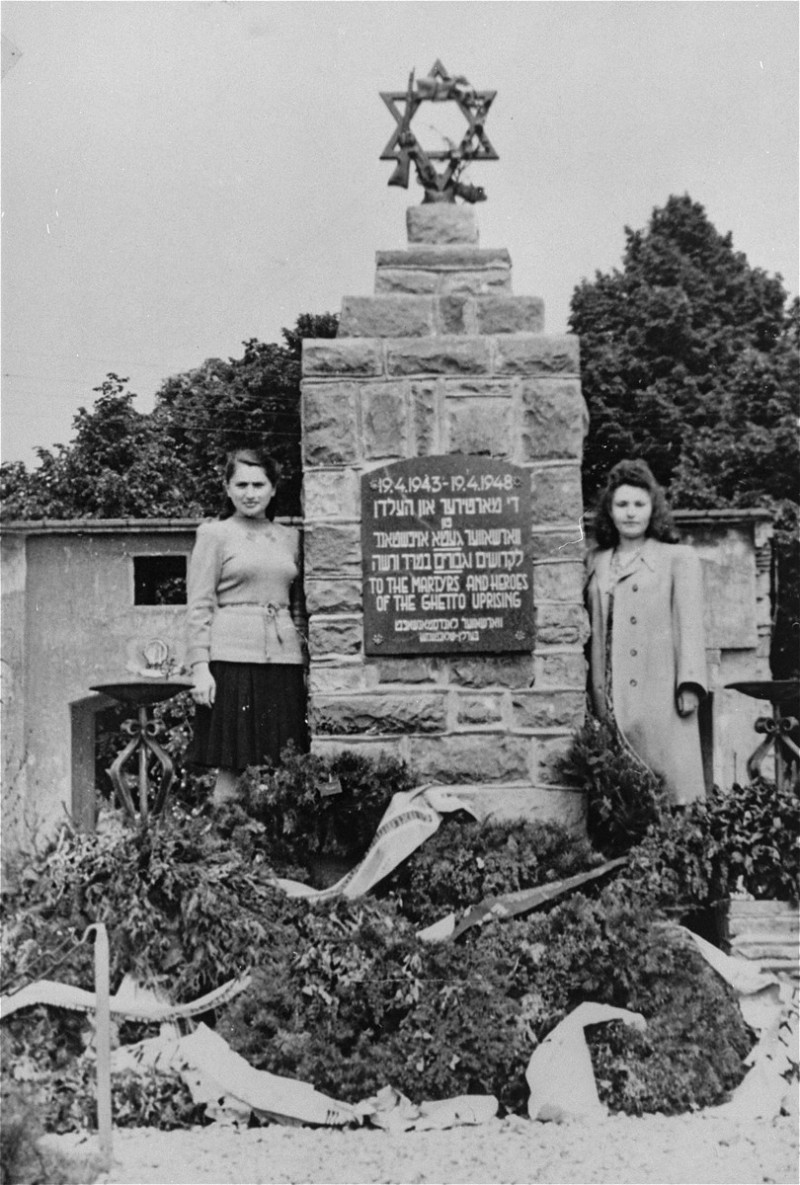
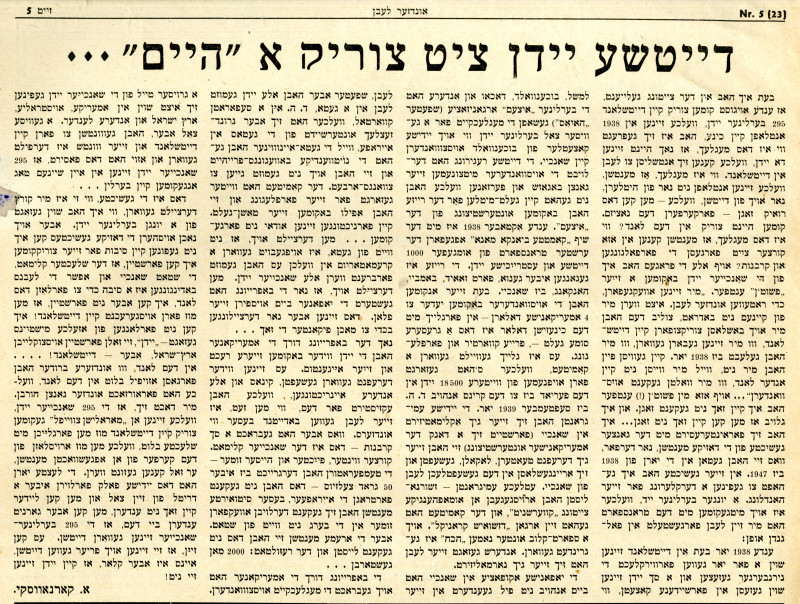
Undzer Lebn, November 19, 1947: “German Jews are moving back ‘home’ …”
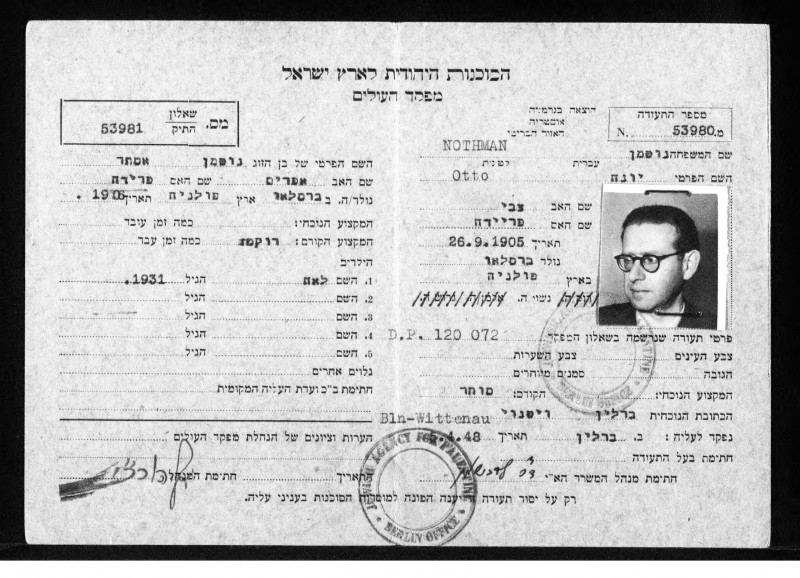
Otto Nothmanns Registrierung bei der Jewish Agency for Palestine © Courtesy of the Leo Baeck Institute, New York, AR 10492
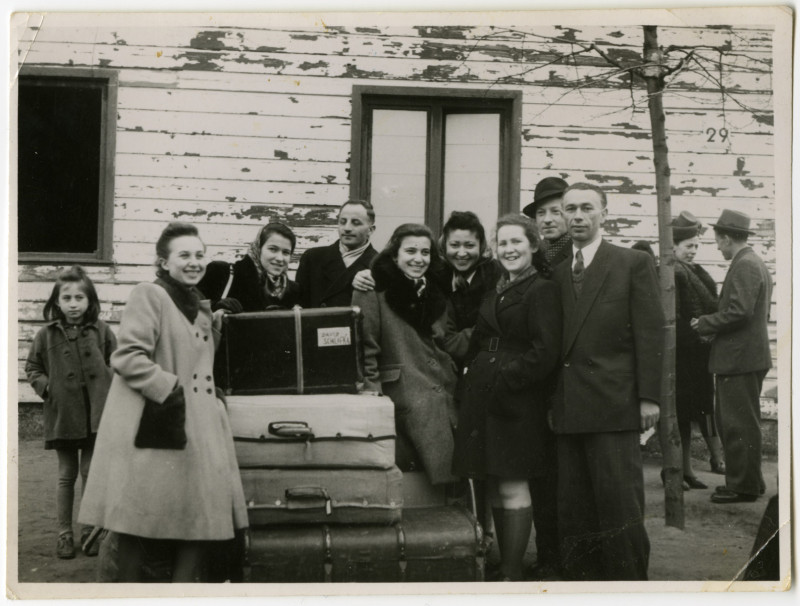
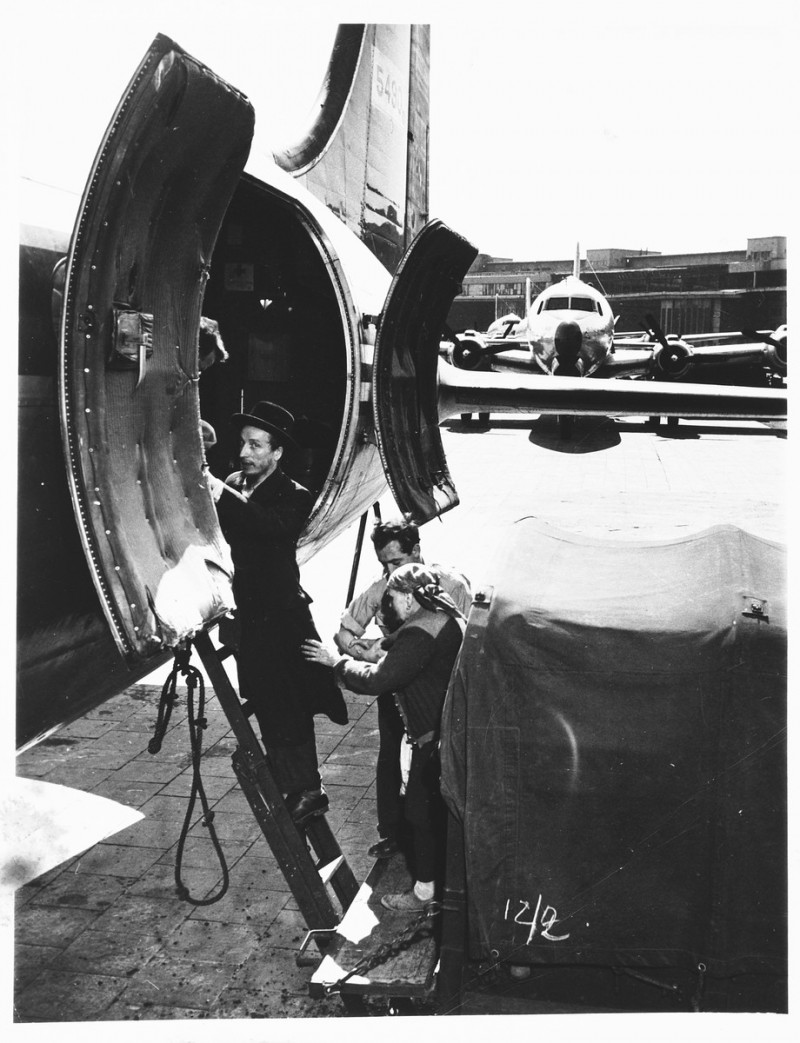
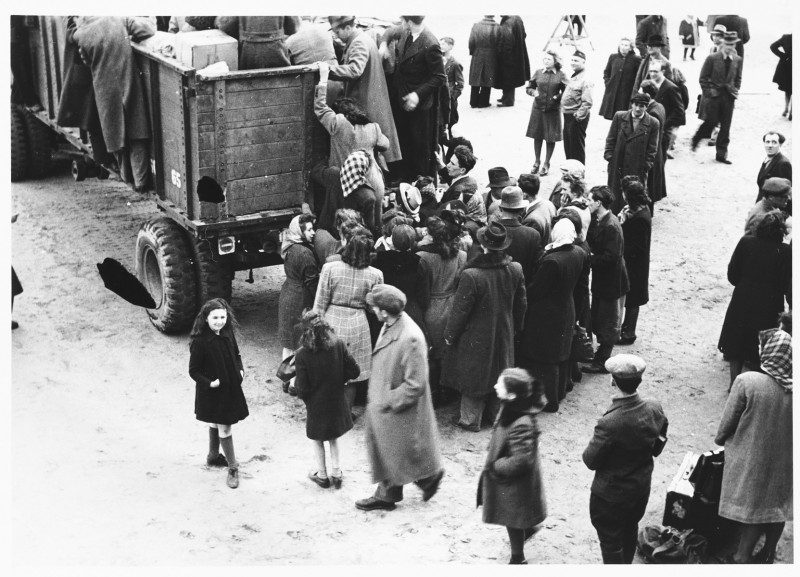
Jewish DPs are loading trucks for departure at “Düppel-Center” © United States Holocaust Memorial Museum, courtesy of Mayer & Rachel Abramowitz, 58442
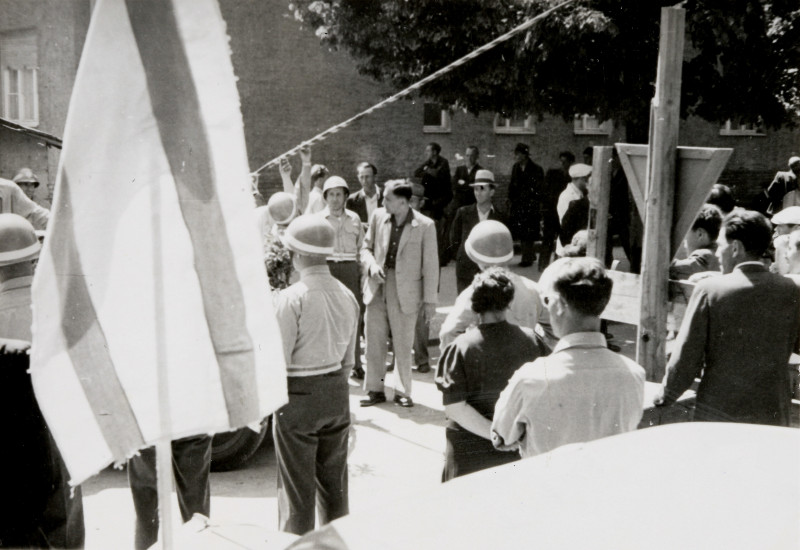
Celebration for the founding of Israel, Berlin-Mariendorf, June 1948 © Jüdisches Museum Berlin, Inv.-Nr. 2006/8/15, Schenkung von Chaim Stein
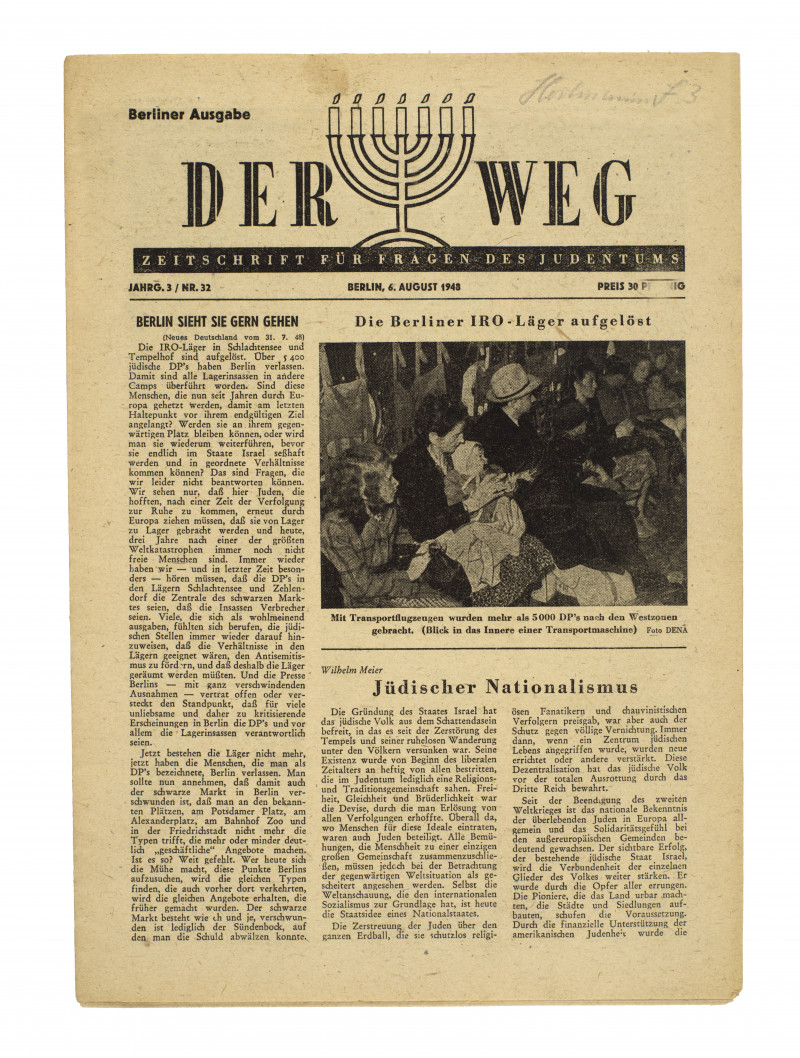
“Berlin sees them go – Berlin IRO camps dissolved”: Der Weg, August 6, 1948; Jüdisches Museum Berlin, Inv.-Nr. BIB/846/0, Foto: Roman März
“We don‘t need to be reminded of destruction because we ourselves are the destruction. We don‘t need to be reminded of mourning because mourning is looking out of our eyes. We, the little bunch of saved European Jews, have become a world problem. […] And we simply cannot believe that it is factually so difficult to find a refuge for the 200,000 homeless European Jews in the big wide world and to turn them into human beings again. It sounds like a paradox: we Europeans want to be human beings! … Do you hear? Normal people!”
Undzer Lebn, August 10, 1946
The Soviet blockade of Berlin from June 1948 to May 1949 made it much more difficult to supply the city, prompting the U.S. military government to evacuate the DPs in their occupation zone. All Jewish DPs who decided to stay in the city were denied further assistance by aid organizations.
With the evacuation, all three Berlin DP camps were dissolved. Suddenly, on the evening of July 21, 1948, people learned that they would have to pack their bags within a few days. In the following two weeks, about 5,000 people were taken from Tempelhof Airport to various parts of the Western occupation zones. There, new accommodation in camps awaited them. In some cases, it took years before they were given the opportunity to emigrate.
“Emigration, emigration – more and more often you hear the word among many camp Jews, and it fills them with hope and dreams […] But what do the sweet dreams look like in reality? Letters tell about it, written by those who arrived, by the disappointed, and often, the desperate … unemployment, special laws for immigrants and foreigners, long-lasting forced accommodation with relatives […]. But all these are peanuts in comparison to the great epidemic that accompanies the ‘Wandering Jew’ to the new Diaspora countries. Antisemitism is the name of this epidemic, which knows no borders or fences, which penetrates into all corners of the globe and makes life and the normal existence for Jews in Diaspora countries difficult.”
Undzer Lebn, March 18, 1948

Although the camps lost their transit character over time, most DPs did not give up their goal of emigration. Due to the location in the middle of the Soviet occupation zone and the inner-city division, emigration from Berlin was particularly difficult. Most DPs aspired to emigrate to the United States or to British Mandate Palestine.
People were largely united in their belief that a Jewish state had to be created. This conviction had grown during the years of waiting in DP camps. Those who wanted to emigrate to Palestine, like Otto Nothmann, registered with the Jewish Agency for Palestine. All other emigration destinations were taken care of by the American-Jewish aid organization Joint (JDC). But the DP community was politically and socially heterogeneous, and not all DPs emigrated from Germany. In addition to Zionists, for instance, there were Socialists who consciously chose the emerging German Democratic Republic. In West Germany, too, some former DPs built a life for themselves despite the painful past.

When in the fall of 1947 German Jews returned to Berlin from their Shanghai exile, the newspaper Undzer Lebn headlined: “German Jews move back ‘home’ …” and continued: “They cannot be Jews anymore.” The editors clearly deemed a Jewish future in Germany impossible.
Not all DPs agreed. Several hundred Jewish DPs, including many Jewish Germans, remained in Berlin, or returned in the months after the evacuation. They had built an existence for themselves by now. In the years that followed, they became an integral part of post-war Berlin. Individuals such as the merchant Szloma Albam who later founded the very foundation that made this exhibition possible; the future chairman of the Central Council of Jews Ignatz Bubis; or the film producer Artur Brauner – all of them had a decisive influence on the cultural and political life of the city.

In their confrontation with their own persecution and the losses they experienced, Jewish survivors in Europe were the first to research Nazi crimes.